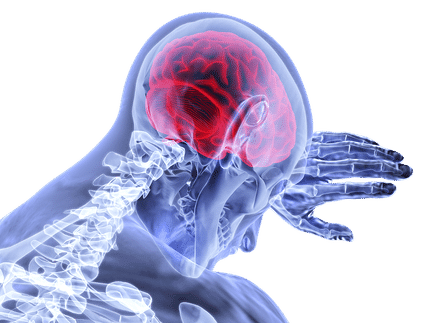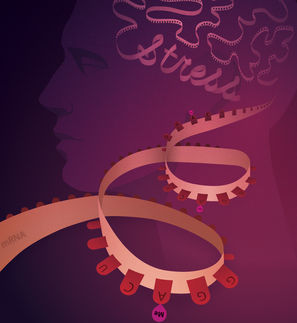Stress genes out of kilter
Max Planck researchers succeed in predicting risk of alcoholism
Advertisement
Scientists from the Max Planck Institute of Experimental Medicine in Göttingen have investigated genetic variations of the corticotropin releasing factor (CRF) system, the biological stress axis, in schizophrenia patients. This system, which consists of various signalling molecules and the receptor structures that interact with them on the cell surface, plays a crucial role in the individual stress response. Hannelore Ehrenreich and her team have demonstrated for the first time an interaction between genetic variants within the CRF system, which show a high predictive value for the risk of comorbid alcoholism.
Alcoholism is a serious and incurable disease that affects up to 20% of the adult population in industrialised countries. The term alcoholism refers to both the serious abuse of alcohol and dependence on it. “The treatment of alcoholism is hampered by an extremely high relapse rate following physical detoxification and even many months of abstinence,” explains Hannelore Ehrenreich, Head of the Division of Clinical Neuroscience at the Max Planck Institute of Experimental Medicine.
Rates of alcoholism well in excess of 30% arise in people who suffer from chronic diseases, for example serious skin diseases, rheumatism, schizophrenia and depression. “It is not difficult to imagine how, in addition to an already debilitating underlying illness, alcoholism has disastrous effects on the disease progression and the patient’s individual situation,” says the physician.
Serious disease is an enormous strain on the patient that may be equated with a severe chronic stress situation. The development of comorbid alcoholism under these circumstances can be evaluated, therefore, as an ill-fated attempt to cope with the stress. As an easily accessible substance, alcohol is used by patients as form of self-treatment which helps them to deal with the effects of internal and external stress and negative emotions.
The genetic configuration of the biological stress axis, in particular the CRF (corticotropin releasing factor) system, constitutes a crucial factor in the individual response to stress. The essential components of this system include the corticotropin releasing factor (CRF) itself, a hormone formed predominantly in the hypothalamus, its receptors (CRFR), meaning the specific binding sites on the surface of the cell that transmit the effects of CRF, and a CRF-binding protein (CRFBP), the function of which is to capture any excess CRF that may be produced.
The balance between the receptor (CRFR) and the CRF-binding protein (CRFBP), which both compete for the binding of the hormone, plays a key role in the level of the stress response generated by an individual. “Targeted prophylactic and therapeutic measures could be taken if we knew in advance how pronounced a person’s stress response is and, therefore, how high the risk is that he or she will develop alcoholism under the corresponding conditions,” says Ehrenreich.
Katja Ribbe and her colleagues from the Max Planck Institute of Experimental Medicine in Göttingen addressed this particular question. To this end, they examined patients from the GRAS (Göttingen Research Association for Schizophrenia) data pool who suffer from schizophrenia. “Schizophrenic patients basically served as a 'model population' of chronically stressed people for this scientific study. Based on this model population, we wanted to examine whether there is a correlation between genetic variants within the CRF system and a predisposition for alcoholism,” explains Ribbe.
The scientists actually succeeded for the first time in demonstrating the existence of such an interaction. Certain genetic variants of the CRF system, that is CRFR1 and CRFBF in combination, have a high diagnostic value regarding the risk of developing comorbid alcoholism. Moreover, the authors of the study replicated their findings in a small control group of patients with other psychiatric disorders. The researchers conclude from their findings that the risk constellation they discovered can probably be applied to chronically stressed persons and other groups of diseases in general.
“In the named risk constellation, the genetic variants of CRFR1 and CRFBP cause the balance between the receptor and binding protein to be set in such a way that a hyperactive stress axis arises spontaneously,” says Ehrenreich: “In other words, people who have this genetic combination are practically always more strongly ‘wired’ and are at far greater risk of developing comorbid alcoholism than people with every other combination of these genotypes.”
Therefore, based on this study, in future it will be possible to identify patients at risk and treat them with the relevant prophylactic and therapeutic measures. “This study basically represents a prototypical step towards the future development of individualised therapeutic approaches,” notes Ehrenreich.

















































